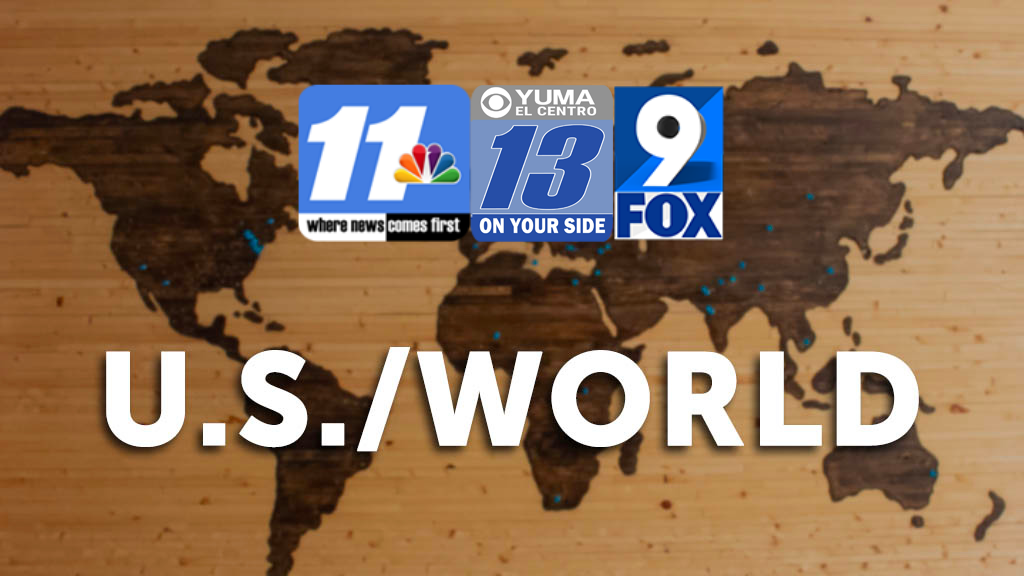Sports bets abound, NCAA now embraces Vegas in March Madness

By MARK ANDERSON
AP Sports Writer
LAS VEGAS (AP) — An event that would have been unthinkable not even a decade ago is coming to Las Vegas this week. That’s March Madness.
The NCAA Tournament avoided the city until now because sports gambling is legal here. The governing body for collegiate athletics even had a policy in place of not allowing its championship events to be played in Nevada.
Gone are those times. With sports betting abound, the NCAA has no qualms about placing its championships in Las Vegas. The West Region games at T-Mobile Arena are among the many championship events the NCAA awarded to the city.
Others include hockey’s Frozen Four in 2026, the Final Four in 2028, and a shot at the College Football Playoff National Championship as early as 2027.
This no longer is Jerry Tarkanian’s Las Vegas, at least in the eyes of the NCAA, which for many years had fought with the UNLV Hall of Fame coach who sued the governing body and settled in 1998 for $2.5 million.
Between the outlaw image of Tarkanian and an overall air that sports betting — legal or not — was inherently bad for athletics, Las Vegas was an outsider in the sports world for a long time.
It also was a much smaller city when Tarkanian ruled. Less than 800,000 people lived in the metropolitan area when the Rebels won the 1990 national championship, according to the Las Vegas Convention and Visitors Authority. That figure last year was 2.3 million.
Professional sports have seen the additional potential paying customers, and now the NFL and NHL have teams here. The Oakland Athletics are considering moving here, and an NBA expansion team could be on the way in future years.
Even before the influx of professional teams, Las Vegas began making headway, particularly in basketball. All 30 teams compete in the NBA Summer League in Las Vegas, which also is home to USA Basketball. Five conferences play their men’s and women’s basketball tournaments in the Las Vegas area.
Views about legalized sports betting also have evolved dramatically, with a big assist from Washington in 2018 when the U.S. Supreme Court struck down the Professional and Amateur Sports Protection Act.
The federal ban blocked states from regulating sports betting, making exceptions for Nevada, Delaware, Montana and Oregon, which already had legal sports wagering in some form. Only Nevada permitted single-game betting.
“Thirty years ago in the Tarkanian era, I’m sure they were pretty skeptical of Las Vegas,” said Steve Hill, CEO and president of the Las Vegas Convention and Visitors Authority. “I think as time passed, they probably mellowed. We’ve had conference tournaments here and we’ve had a real partnership, it feels like now, that didn’t exist before the change in the law.”
The Supreme Court’s decision created a path for any state that wanted to legalize sports betting, and soon many would begin the process. That left the NCAA — already showing signs of drifting toward easing its stance on Nevada — with no choice but to allow its championship events even where sports wagering was legal.
“That was the impetus,” said Dan Gavitt, NCAA vice president of men’s basketball. “Once that changed, we were excited from a basketball championships perspective to bring March Madness to such a great city that has embraced college basketball with conference championships for some time.”
Jim Livengood, when he was UNLV’s athletic director in 2009-13, worked behind the scenes with his colleagues before the federal ban was overturned to change the NCAA’s position toward Las Vegas.
Even after retiring in 2013, Livengood remained an advocate for Las Vegas as he moved into consulting.
“I thought the tide was starting to turn in probably ‘16, ’17, ’18,” Livengood said. “We were making some really serious headway.”
In 2019, the NCAA formally changed its policy regarding championships in Las Vegas — and it couldn’t wait to plant a flag.
NCAA officials told Las Vegas representatives to skip the usual process of first bidding on the first two rounds of the NCAA Tournament and go straight for a regional.
“I think that was very unusual, but a reflection of the fact that there was pent-up demand for Las Vegas,” Pac-12 Conference Commissioner George Kliavkoff said.
___
AP College Sports Writer Ralph D. Russo contributed.
___
AP March Madness coverage: https://apnews.com/hub/march-madness and bracket: https://apnews.com/hub/ncaa-mens-bracket and https://apnews.com/hub/ap-top-25-college-basketball-poll and https://twitter.com/AP_Top25